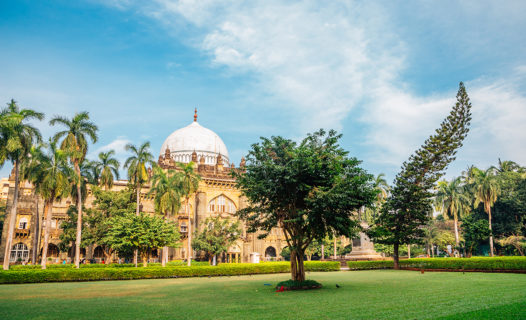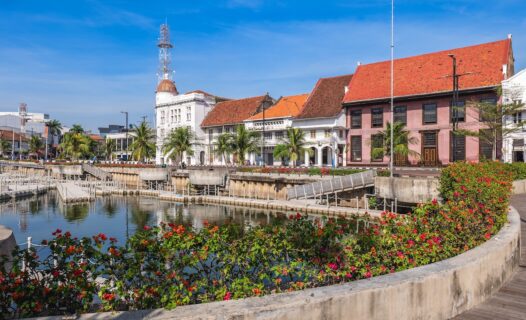Welcome to Bali’s Market Wonderland
Welcome to Bali, where the sun-soaked beaches meet the vibrant chaos of its bustling markets! If you’re on the hunt for unique finds in Bali, you’re in for a treat. The island’s market culture is a treasure trove of local craftsmanship, delicious street food, and a dash of Balinese charm that makes shopping an exhilarating adventure. Whether you’re a seasoned shopper or a curious traveler, exploring Bali’s local markets offers a delightful way to immerse yourself in the island’s rich culture and discover hidden gems that tell stories of their own.
Discovering Bali’s Traditional Markets: A Cultural Experience
Step into a traditional Balinese market, and you’re not just shopping; you’re experiencing a cultural hub that plays a vital role in the daily lives of the locals. These markets are more than just places to buy souvenirs; they are vibrant social spaces where communities come together, and traditions are passed down through generations. Each market has its own unique flavor, and here are some must-visit spots that capture the essence of Bali’s market culture.
Ubud Market
Located in the heart of Ubud, the Ubud Market is a haven for art lovers and shoppers alike. This bustling market is famous for its artisanal handicrafts, vibrant textiles, and stunning souvenirs that reflect the island’s artistic heritage. Historically, Ubud has been a center for art and culture, and the market embodies this spirit. As you wander through the stalls, you might hear tales of the artisans who create these beautiful pieces, adding a personal touch to your shopping experience.
Sukawati Art Market
Another gem is the Sukawati Art Market, renowned for its impressive collection of paintings, sculptures, and handmade crafts. This market is a true reflection of Bali’s artistic soul, where you can find everything from traditional batik to intricate wood carvings. The market has a rich history, often described in local folklore as a gathering place for artists and craftsmen to showcase their talents. Don’t forget to haggle a little; it’s all part of the fun!
Badung Market
For a more local experience, head to Badung Market in Denpasar. This market is a sensory overload of colors, sounds, and aromas. Here, you can find everything from fresh produce and spices to traditional Balinese offerings and textiles. Historically, Badung Market has served as a central marketplace for the island, connecting farmers and artisans with the community. As you stroll through the aisles, take a moment to appreciate the stories behind the products and the dedication of the vendors who make this market thrive.
These traditional markets are not just shopping destinations; they are cultural experiences that allow you to connect with the heart and soul of Bali. Whether you’re searching for the perfect souvenir or simply soaking in the atmosphere, Bali’s markets offer a delightful blend of commerce and culture that will leave you enchanted.
Unique Finds and Local Flavors: What to Look For
As you explore Bali’s markets, keep your eyes peeled for unique handicrafts and local delicacies that you won’t find anywhere else. From beautifully woven textiles to intricate jewelry, each item has a story waiting to be discovered. Here are some must-have items and local flavors to seek out during your market adventures.
Bali Handicrafts
Bali is famous for its stunning handicrafts, and the markets are brimming with unique creations. Look for intricately carved wooden statues, vibrant batik fabrics, and handmade jewelry that showcase the island’s rich artistic traditions. Many artisans are happy to share the stories behind their crafts, making your purchase even more special. Don’t hesitate to ask about their techniques and inspirations; it’s a great way to connect with the local culture.
Local Food in Bali
No trip to Bali is complete without indulging in the local cuisine! Markets are the perfect place to sample authentic Balinese dishes. Be sure to try Babi Guling (suckling pig) and Nasi Campur (mixed rice), two staples that will tantalize your taste buds. You might even stumble upon local vendors who are eager to share their recipes and cooking tips, giving you a taste of Bali’s culinary heritage.
For a truly immersive experience, engage with the vendors. Many are passionate about their crafts and food, and you’ll find that they love sharing their stories. You might hear about the significance of a particular dish or the history of a craft, enriching your market experience.
Exploring Bali’s Night Markets: A Feast for the Senses
As the sun sets over Bali, a different side of the island awakens—its enchanting night markets! These vibrant bazaars come alive with the aroma of sizzling street food, colorful stalls, and the chatter of locals and travelers alike. If you’re a foodie or an adventurer at heart, Bali’s night markets are a must-visit, offering a delightful mix of culinary delights and a lively atmosphere.
Gianyar Night Market
One of the most popular spots is the Gianyar Night Market, where you can sample a smorgasbord of traditional Balinese dishes. The market is famous for its grilled meats, fresh seafood, and mouthwatering desserts. Don’t miss out on trying Satay Lilit, a unique twist on the classic satay, made with minced fish wrapped around lemongrass sticks. As you stroll through the market, the lively music and laughter create an inviting ambiance that’s hard to resist.
Seminyak Night Market
If you’re looking for a more upscale experience, the Seminyak Night Market is the place to be. This market offers a blend of street food and artisanal products, making it perfect for those who want to indulge in local flavors while shopping for unique souvenirs. Here, you can find everything from handmade jewelry to trendy clothing. The atmosphere is chic and lively, with colorful lights and stylish food stalls that make for great Instagram shots!
Whether you’re feasting on local delicacies or hunting for the perfect memento, Bali’s night markets offer a sensory overload that will leave you buzzing with excitement. Engage with the vendors—they love sharing stories about their food and crafts, adding a personal touch to your evening adventure.
The Art of Bargaining: Tips for Savvy Shoppers
Shopping in Bali’s markets isn’t just about finding unique treasures; it’s also an engaging experience that involves a bit of friendly haggling. Bargaining is a cultural norm here, and with the right approach, you can score some fantastic deals. Here are some tips to help you navigate the art of bargaining like a pro!
Start Low, But Be Respectful
When you find something you love, start by offering a price lower than what the vendor is asking. This gives you room to negotiate. However, be respectful and don’t offer an insulting amount—keep it reasonable. The goal is to reach a fair price that both you and the vendor are happy with.
Be Friendly and Engage
Building rapport can go a long way in bargaining. Smile, chat, and show genuine interest in the vendor’s products. Many vendors appreciate friendly interactions and may be more inclined to give you a better price if they feel a connection. Plus, you might learn a thing or two about the items you’re interested in!
Know When to Walk Away
If you feel the price is too high, don’t hesitate to walk away. Often, this can prompt the vendor to offer you a better deal. Just remember, it’s all in good fun—keep the mood light and enjoy the process!
With these tips in hand, you’ll be well-equipped to navigate Bali’s markets and find those authentic souvenirs at prices that won’t break the bank. Happy bargaining!
Day-by-Day Itinerary for Market Lovers
Ready to immerse yourself in Bali’s market culture? Here’s a suggested itinerary to help you explore the island’s best markets over a week. Each day is packed with shopping, delicious food, and cultural experiences, making it perfect for market enthusiasts!
Day 1: Ubud Market and Surroundings
Kick off your adventure at the Ubud Market. Spend the morning browsing through artisanal handicrafts and textiles. Afterward, visit the nearby Ubud Monkey Forest to see playful monkeys and lush greenery. For lunch, try a local café and indulge in a traditional Balinese meal.
Day 2: Sukawati Art Market and Tegenungan Waterfall
Head to the Sukawati Art Market for an array of paintings, crafts, and souvenirs. Don’t forget to haggle for the best prices! In the afternoon, take a short trip to Tegenungan Waterfall to cool off and enjoy nature.
Day 3: Badung Market and Denpasar
Explore Badung Market for fresh produce, spices, and local offerings. Spend the afternoon discovering Denpasar’s cultural sites, like the Bajra Sandhi Monument. End your day with a delicious dinner at a local restaurant.
Day 4: Seminyak Night Market
After a day of relaxation, head to the Seminyak Night Market in the evening. Enjoy the chic atmosphere, sample street food, and shop for stylish souvenirs. Don’t forget to take photos of the vibrant stalls!
Day 5: Gianyar Night Market
On your final market day, visit the Gianyar Night Market for a culinary adventure. Try various local dishes and enjoy the lively ambiance. This is a perfect way to end your week of market exploration!
This itinerary offers a balanced mix of shopping, cultural experiences, and culinary delights, ensuring you get the most out of your market adventures in Bali.
Seasonal Shopping Insights: Best Times to Visit Markets
Timing your visit to Bali’s markets can greatly enhance your experience. Different seasons bring variations in offerings, crowds, and events. Here’s what to keep in mind!
Peak Season (July to August)
During the peak tourist season, markets can get quite crowded, but this is also when you’ll find the most vibrant atmosphere. Expect to see a wide variety of products, from handicrafts to local delicacies. However, be prepared to navigate through larger crowds!
Low Season (January to March)
If you prefer a more relaxed shopping experience, consider visiting during the low season. The markets are less crowded, and you might find better deals as vendors are eager to sell. Plus, you can enjoy a more leisurely pace while exploring.
Festivals and Events
Keep an eye out for local festivals, such as Nyepi (Day of Silence) or Galungan, as these events often coincide with market visits. You’ll find unique items and special offerings that reflect the festive spirit, making your shopping experience even more memorable.
By planning your market visits around these seasonal insights, you can discover unique items and enjoy a more enriching shopping experience in Bali.
Safety and Health Guidelines for Market Visits
While exploring Bali’s markets is an exciting adventure, it’s essential to stay safe and healthy. Here are some practical tips to ensure a worry-free experience:
Stay Aware of Your Surroundings
Markets can get busy, so keep an eye on your belongings. Use a crossbody bag or a money belt to keep your valuables secure. Be mindful of your surroundings, especially in crowded areas.
Health Precautions
When sampling street food, make sure it’s freshly prepared. Look for busy stalls with a high turnover of customers, as this often indicates freshness. Carry hand sanitizer to maintain hygiene, especially before eating.
Know Common Scams
While most vendors are honest, be aware of common scams, such as inflated prices for tourists. Don’t hesitate to ask locals for advice on fair prices or to seek help if something feels off.
By following these safety and health guidelines, you can enjoy the thrill of Bali’s markets with peace of mind. Happy shopping!
Fun Facts About Bali’s Market Culture
Ready to impress your friends with some quirky trivia about Bali’s markets? Here are some fun facts that highlight the island’s rich market culture:
Market Origins
Many traditional markets in Bali date back centuries, serving as gathering places for local communities. They were originally designed to facilitate trade between farmers and artisans, showcasing the island’s agricultural bounty and craftsmanship.
Unique Offerings
Bali’s markets are home to some unique items, like canang sari, traditional offerings made of flowers and leaves. These colorful creations are not just beautiful; they hold spiritual significance in Balinese culture.
Night Market Tradition
Night markets have become a beloved tradition in Bali, offering a different shopping experience under the stars. They provide a social hub for locals and tourists alike, where food, music, and culture come together in a lively setting.
These fun facts give you a glimpse into the vibrant market culture in Bali, enriching your experience as you explore the island’s hidden gems.
Frequently Asked Questions About Bali’s Markets
Here are some common questions travelers have about visiting Bali’s markets, along with helpful answers:
What are the best markets to visit in Bali?
Some of the top markets include Ubud Market, Sukawati Art Market, Badung Market, and various night markets like Gianyar and Seminyak.
What should I bring when visiting markets?
Bring cash, as many vendors do not accept credit cards. It’s also a good idea to carry a reusable shopping bag for your purchases and a water bottle to stay hydrated.
Are the prices fixed in Bali’s markets?
No, prices are generally negotiable. Don’t hesitate to haggle for a better deal, but always do so respectfully.
These FAQs provide clarity for your market adventures, ensuring you’re well-prepared for a fantastic shopping experience!
Exploring Bali’s markets is not just about shopping; it’s about immersing yourself in the island’s vibrant culture, meeting local artisans, and tasting delicious street food. So grab your shopping bags and get ready for an unforgettable adventure filled with unique finds and local flavors!



















